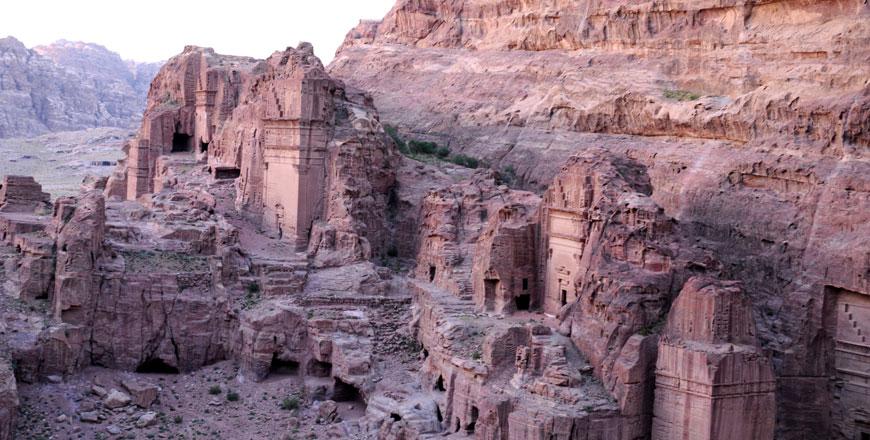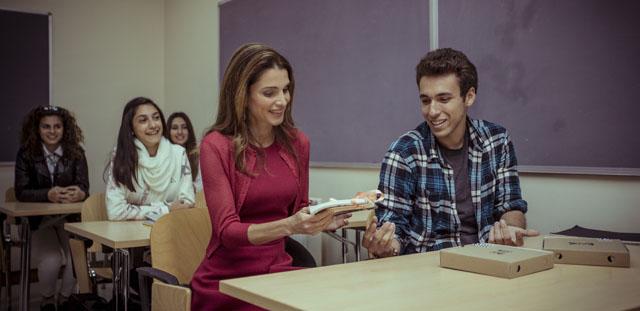You are here
Heritage conservation master’s programme offers opportunities for Jordanians, refugees
By Saeb Rawashdeh - Aug 05,2020 - Last updated at Aug 08,2020

A master’s programme offered by the School of Architecture and Built Environment of the German-Jordanian University in heritage conservation targets Petra and Rihab, near Mafraq (Photo courtesy of Ignacio Arce)
AMMAN — A master’s programme in heritage conservation offered by the School of Architecture and Built Environment [SABE] of the German-Jordanian University [GJU] has become a “reference” for the region, attracting students from Jordan, Syria, Yemen, Iraq and Palestine, according to a Spanish scholar at the GJU.
“SABE has been recognised with the assignment of the task to develop two site management and touristic development plans for the World Heritage Site of Petra and for the village of Rihab [near Mafraq], after winning both bids launched by UNESCO and addressed to the Jordanian universities,” Professor Ignacio Arce told The Jordan Times in a recent e-mail interview.
The GJU currently runs “the only master’s programme in architectural conservation in the Levant”, the scholar said.
The master’s programme was re-launched in 2017 with the support of the German Academic Exchange Service (DAAD), which offered scholarships for Jordanians and Syrian refugees.
The programme would contribute to the conservation and restoration of the cultural heritage of the region, said Arce, who is also the former director of the Spanish Archaeological Mission to Jordan.
“Moreover, the approach of our programme is to offer our students not only a sound theoretical background, but also practical training that will pave their professional paths towards success,” Arce said, adding that “ as matter of fact, these plans are being devised in collaboration with our graduates and students, offering them a unique professional opportunity”.
The programme, within the framework of the UNESCO project titled “Employment opportunities for cultural safeguarding in Jordan”, is implemented by the UNESCO Amman office and the German Agency for International Cooperation, he said.
The programme is also part of the Federal Ministry of Economic Cooperation and Development, Germany special Initiative “Tackling the root causes of migration, stabilising host regions and supporting refugees”, which aims to leverage culture and enhance resilience in local communities by creating short-term job opportunities for Jordanians and Syrian refugees, the scholar noted.
Related Articles
AMMAN — The restoration of the Umayyad bathhouse “Hammam as Sarrah” was only recently completed after financial obstacles halted a 2009-2012
The German-Jordanian University (GJU) and the Princess Sumaya University for Technology (PSUT) have signed a memorandum of understanding to establish and implement a joint master’s programme in enterprise system engineering, according to a GJU statement sent to The Jordan Times on Saturday.
Her Majesty Queen Rania on Monday visited the new premises of the German-Jordanian University’s (GJU) School of Architecture and Built Environment (SABE).

















